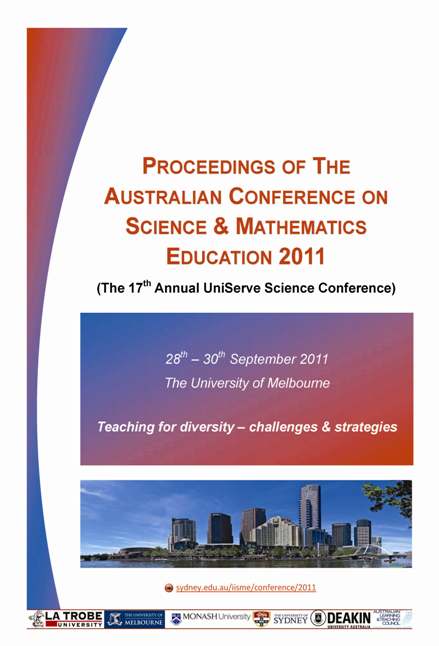Interactive Whiteboards: In-Service and Pre-Service Teachers’ Perspectives of Potential Pedagogical Benefits and Issues in Teaching Science for Young Children
Abstract
Interactive Whiteboards (IWBs) have made a very rapid penetration into Australian schools since 2003. Many junior primary teachers have accepted them as core teaching technology for teaching young learners, yet there is little Australian research that examines the use of IWBs in early year’s science education. This paper reports on preliminary findings from a recent Australian study which highlighted a number of affordances, practices and challenges relating to teaching science to children aged five to six years using IWBs. A mixed methods approach comprising case studies, surveys and work samples has been adopted in this study. Data was collected from teachers and pre-service teachers to explore their individual experiences and perspectives about the uses of IWBs have been recorded. The preliminary analysis of the data summary across the case studies revealed that the teachers used IWBs in a wide range of ways with the intention of bringing a contemporary content into the classroom and leading to the facilitating in inquiry based science. Promoting authenticity and connectedness, multimodality and versatility, and efficiency were the most frequently emerging themes. This study also illustrates the disruptive effects of conventional classroom settings, low technical support and insufficient training towards implementation of IWBs.Downloads
Published
2011-08-10
Issue
Section
Abstracts
